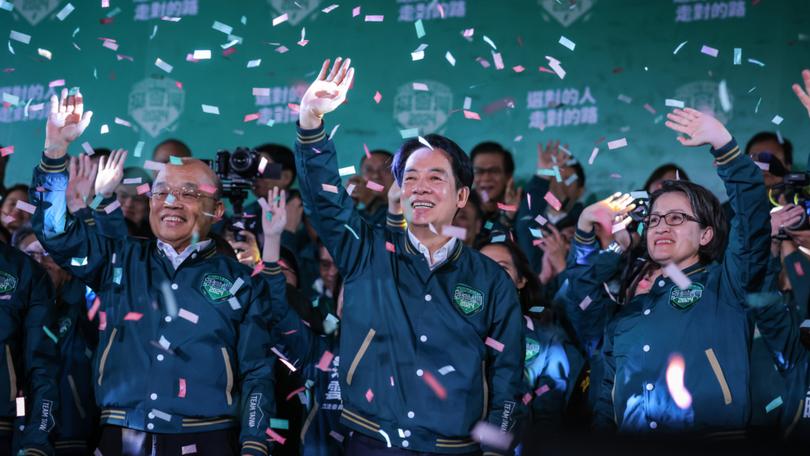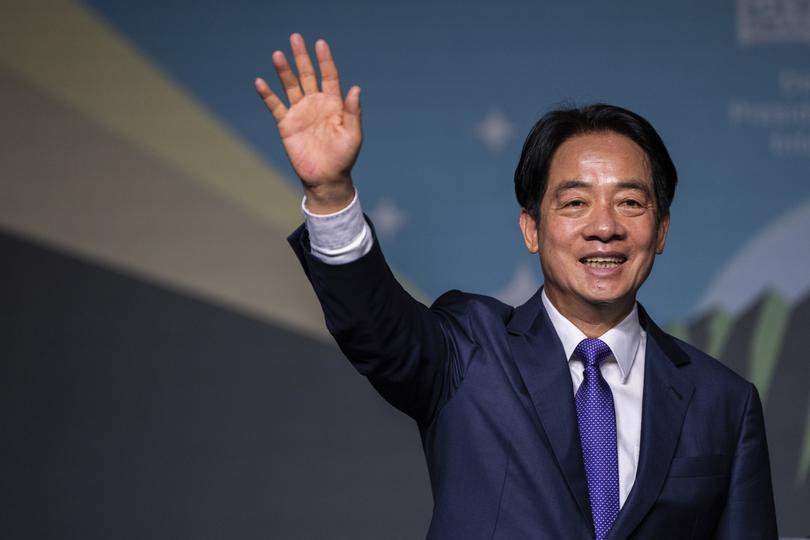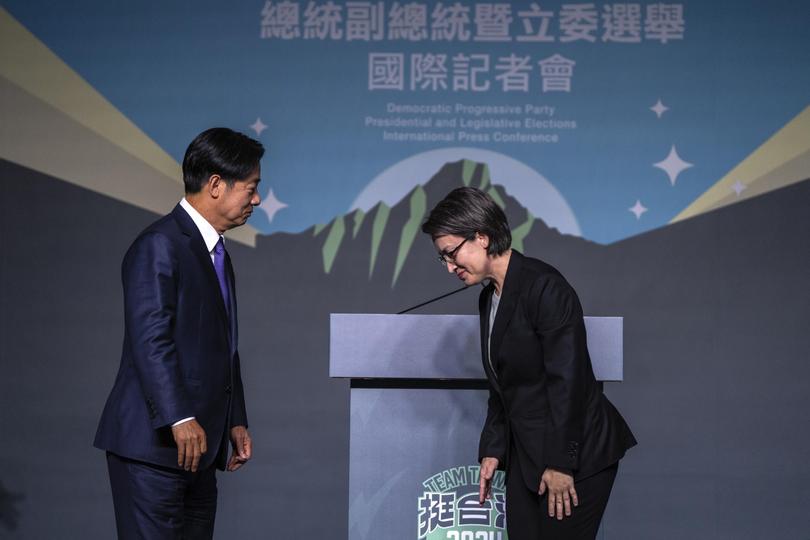The Economist: Defying China, Taiwan elects William Lai Ching-te as president
The government in Beijing failed to scare Taiwan’s voters into abandoning the DPP. It will now try to make them regret it.

Taiwan’s voters chose William Lai Ching-te of the Democratic Progressive Party (DPP) as their new president on January 13th, ushering in an unprecedented third term for the pro-independence ruling party. It was a pivotal election that will determine the democratic island’s approach to Chinese threats over the next four years amid a simmering superpower rivalry between China and America.
“Taiwan is telling the whole world that between democracy and authoritarianism, we choose to stand on the side of democracy,” Mr Lai told his victory rally on election night. His victory is a sign that Taiwanese voters want to continue along the path set by the current president, Tsai Ing-wen, of asserting Taiwan’s status as a sovereign, democratic country—“the world’s Taiwan”, as Ms Tsai often says, rather than China’s Taiwan. That stance infuriates China, which claims Taiwan as part of its territory. China’s ruler, Xi Jinping, recently called unification with Taiwan a “historical inevitability”. Chinese officials had tried to intimidate Taiwan’s voters by calling this election a choice between “war and peace, prosperity and decline”, and denouncing the DPP as separatists.

Sign up to The Nightly's newsletters.
Get the first look at the digital newspaper, curated daily stories and breaking headlines delivered to your inbox.
By continuing you agree to our Terms and Privacy Policy.Those threats did not deter Taiwanese voters. About 70% turned out to cast their votes on a warm, clear Saturday. Most of Taiwan’s population supports neither immediate unification nor independence, but the status quo of de facto independence. Yet voters are divided over how best to safeguard that status quo. Mr Lai won with 40% of the vote, promising to continue the DPP’s path of deterrence without compromising Taiwan’s sovereignty. “On the premise of reciprocity and dignity, I will replace containment with exchanges and confrontation with dialogue,” he said in his victory speech. “However, in the face of China’s verbal and military threats, I am determined to protect Taiwan.”
The opposition Chinese Nationalist Party, or Kuomintang (kmt), is less trusting of America. It promotes friendly dialogue and trade with China, premised on a shared rejection of Taiwan independence, as a way to lower tensions. Its candidate, Hou Yu-ih, came in second with a third of the vote.
A third-party challenger, Ko Wen-je, of a newcomer, the Taiwan People’s Party (tpp), won a substantial 26% of the vote. His platform focused on domestic issues such as housing and wages rather than on China. That was popular with young voters. But Mr Ko also promoted a deferential cross-straits policy similar to the KMT’s. His candidacy split off voters from both of the two traditional parties, many of them saying they were fed up with their “ideological” politics.
The DPP also lost its majority in the Legislative Yuan, Taiwan’s parliament. It is now split between all three parties, with the TDD’s legislators as a decisive minority. That could mean gridlock on vital issues such as defence and cross-straits trade. The last time Taiwan had a split assembly and executive was under the DPP’s Chen Shui-bian, who was president from 2000 to 2008. The kmt-dominated parliament blocked Mr Chen’s proposed military budgets more than 60 times, forcing him to lower defence spending from a proposed $19.6bn in 2004 to $320m when his budget was eventually passed in 2007. Opposition lawmakers could also block Mr Lai’s military budgets.

China is not happy with Taiwan’s choice. Chen Binhua, a spokesman for the government’s Taiwan Affairs office, issued a statement saying the election results showed the DPP “does not represent mainstream public opinion”, and that China remains set on “national unification”.
Since Ms Tsai came to power eight years ago, China has cut off communication with Taiwan’s authorities, blocked independent Chinese travel to Taiwan, and ramped up military pressure on the island. Most memorably, China sent missiles over Taiwan and enacted a mock blockade around the main island in August 2022 after a visit from Nancy Pelosi, then speaker of America’s House of Representatives. Chinese warplanes overflew the Taiwan Strait nearly every day, often crossing the median line, a de facto boundary between the two sides. China has also sent balloons flying over the island, and revoked some preferential trade policies for Taiwanese imports in the weeks leading up to the vote.
Mr Lai is known for having been more outspoken in the past than Ms Tsai on Taiwan independence. But during the campaign he promised to continue down her path of moderation, avoiding sudden moves such as declaring independence (Taiwan is already independent and so has no need to declare it, the DPP’s leaders now say). His running mate, Hsiao Bi-khim, Taiwan’s former representative to America and now its vice-president-elect, is also known and trusted in Washington as a firm but careful defender of Taiwan’s democracy. That is little reassurance to the Chinese Communist Party. On January 10th Mr Chen said Mr Lai would be sure to push for “separatist activity” and would create a “dangerous situation of high winds and urgent waves” in the Taiwan Strait.
Beyond his statement on election day, China did not immediately respond to the results. But given all the fuss its officials have made over Mr Lai, some kind of symbolic military action is likely. One flashpoint could come soon: America plans to send an unofficial delegation of former senior officials to meet the new president soon after the election. A senior Biden administration official says this is nothing new. The White House has been sending similar post-election delegations to Taiwan since 2000, and their purpose is to help keep cross-strait relations stable. But China could use the visit as an excuse to stir up trouble.
Another potential flashpoint is May 20th, Taiwan’s inauguration day. Mr Lai already caused controversy during his campaign when he said he hoped to see a Taiwan president enter the White House one day. American officials will be nervous about whether he might say anything else that strays from precedent in his inauguration speech. Meanwhile China will be keen to make Taiwanese citizens feel that they have entered more dangerous waters by electing Mr Lai. The government in Beijing failed to scare Taiwan’s voters into abandoning the DPP. It will now try to make them regret it.
